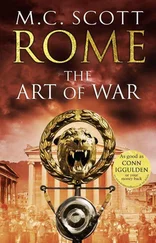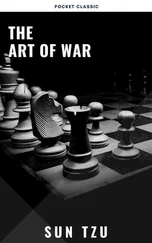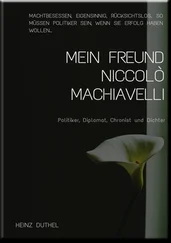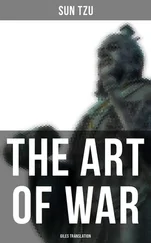FABRIZIO
All the reasons that you mention are from men who are not far sighted, as I shall clearly show. And first, as to the uselessness, I say to you that no army is of more use than your own, nor can an army of your own be organized except in this way. And as there is no debating over this, which all the examples of ancient history does for us, I do not want to lose time over it. And because they cite inexperience and force, I say ((as it is true)) that inept experience gives rise to little spirit (enthusiasm) and force makes for discontent: but experience and enthusiasm gains for themselves the means for arming, training, and organizing them, as you will see in the first part of this discussion. But as to force, you must understand that as men are brought to the army by commandment of the Prince, they have to come, whether it is entirely by force or entirely voluntarily: for if it were entirely from desire, there would not be a Deletto as only a few of them would go; so also, the (going) entirely by force would produce bad results; therefore, a middle way ought to be taken where neither the entirely forced or entirely voluntarily (means are used), but they should come, drawn by the regard they have for the Prince, where they are more afraid of his anger than the immediate punishment: and it will always happen that there will be a compulsion mixed with willingness, from which that discontent cannot arise which causes bad effects. Yet I do not claim that an army thus constituted cannot be defeated; for many times the Roman armies were overcome, and the army of Hannibal was defeated: so that it can be seen that no army can be so organized that a promise can be given that it cannot be routed. These wise men of yours, therefore, ought not measure this uselessness from having lost one time, but to believe that just as they can lose, so too they can win and remedy the cause of the defeat. And if they should look into this, they will find that it would not have happened because of a defect in the means, but of the organization which was not sufficiently perfect. And, as I have said, they ought to provide for you, not by censuring the organization, but by correcting it: as to how this ought to be done, you will come to know little by little.
As to being apprehensive that such organization will not deprive you of the State by one who makes himself a leader, I reply, that the arms carried by his citizens or subjects, given to them by laws and ordinances, never do him harm, but rather are always of some usefulness, and preserve the City uncorrupted for a longer time by means of these (arms), than without (them). Rome remained free four hundred years while armed: Sparta eight hundred: Many other Cities have been dis-armed, and have been free less than forty years; for Cities have need of arms, and if they do not have arms of their own, they hire them from foreigners, and the arms of foreigners more readily do harm to the public good than their own; for they are easier to corrupt, and a citizen who becomes powerful can more readily avail himself, and can also manage the people more readily as he has to oppress men who are disarmed. In addition to this, a City ought to fear two enemies more than one. One which avails itself of foreigners immediately has to fear not only its citizens, but the foreigners that it enlists; and, remembering what I told you a short while ago of Francesco Sforza, (you will see that) that fear ought to exist. One which employs its own arms, has not other fear except of its own Citizens. But of all the reasons which can be given, I want this one to serve me, that no one ever established any Republic or Kingdom who did not think that it should be defended by those who lived there with arms: and if the Venetians had been as wise in this as in their other institutions, they would have created a new world Kingdom; but who so much more merit censure, because they had been the first who were armed by their founders. And not having dominion on land, they armed themselves on the sea, where they waged war with virtu, and with arms in hand enlarged their country. But when the time came when they had to wage war on land to defend Venice and where they ought to have sent their own citizens to fight (on land), they enlisted as their captain (a foreigner), the Marquis of Mantua. This was the sinister course which prevented them from rising to the skies and expanding. And they did this in the belief that, as they knew how to wage war at sea, they should not trust themselves in waging it on land; which was an unwise belief (distrust), because a Sea captain, who is accustomed to combat with winds, water, and men, could more easily become a Captain on land where the combat is with men only, than a land Captain become a sea one. And my Romans, knowing how to combat on land and not on the sea, when the war broke out with the Carthaginians who were powerful on the sea, did not enlist Greeks or Spaniards experienced at sea, but imposed that change on those citizens they sent (to fight) on land, and they won. If they did this in order that one of their citizens should not become Tyrant, it was a fear that was given little consideration; for, in addition to the other reasons mentioned a short while ago concerning such a proposal, if a citizen (skilled) in (the use of) arms at sea had never been made a Tyrant in a City situated in the sea, so much less would he be able to do this if he were (skilled) in (the use of arms) on land. And, because of this, they ought to have seen that arms in the hands of their own citizens could not create Tyrants, but the evil institutions of a Government are those which cause a City to be tyrannized; and, as they had a good Government, did not have to fear arms of their own citizens. They took an imprudent course, therefore, which was the cause of their being deprived of much glory and happiness. As to the error which the King of France makes in not having his people disciplined to war, from what has been cited from examples previously mentioned, there is no one ((devoid of some particular passion of theirs)) who does not judge this defect to be in the Republic, and that this negligence alone is what makes it weak. But I have made too great a digression and have gotten away from my subject: yet I have done this to answer you and to show you, that no reliance can be had on arms other than ones own, and ones own arms cannot be established otherwise than by way of an ordinance, nor can forms of armies be introduced in any place, nor military discipline instituted. If you have read the arrangements which the first Kings made in Rome, and most especially of Servius Tullus, you will find that the institution of classes is none other than an arrangement to be able quickly to put together an army for the defense of that City. But turning to our Deletto, I say again, that having to replenish an established (old) organization, I would take the seventeen year olds, but having to create a new one, I would take them of every age between seventeen and forty in order to avail myself of them quickly.
COSIMO
Would you make a difference of what profession (art) you would choose them from?
FABRIZIO
These writers do so, for they do not want that bird hunters, fishermen, cooks, procurers, and anyone who makes amusement his calling should be taken, but they want that, in addition to tillers of the soil, smiths and blacksmiths, carpenters, butchers, hunters, and such like, should be taken. But I would make little difference in conjecturing from his calling how good the man may be, but how much I can use him with the greatest usefulness. And for this reason, the peasants, who are accustomed to working the land, are more useful than anyone else, for of all the professions (arts), this one is used more than any other in the army: After this, are the forgers (smiths), carpenters, blacksmiths, shoemakers; of whom it is useful to have many, for their skills succeed in many things, as they are a very good thing for a soldier to have, from whom you draw double service.
Читать дальше












